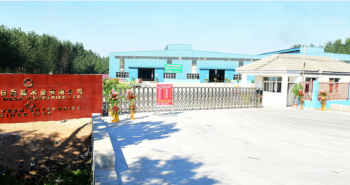Nearly a year has passed since European countries explicitly banned the “conflict timber” between Russia and Belarus. Despite the ongoing stalemate in the Russo Ukrainian dispute and the European insistence on imposing sanctions on Russia, will the UK, as a country with a great demand for Russian timber, relax its restrictions on the flow of Russian timber into the country’s market?
Recently, the British Timber Industry Association (TDUK) issued a statement reminding its members to pay attention to the issue of illegal imports of conflict timber from Russia and Belarus. The association requires members to remain vigilant about imported timber trade and take necessary preventive measures to avoid unintentional procurement of timber products related to these areas.
Especially birch plywood from Russia. This is one of the wood products in demand in the European market, with a large amount of Russian birch plywood flowing into the European market every year. Nowadays, this export data is already zero.
According to TDUK, although Russia, Belarus, and others have been banned from exporting wood and wood products to the EU and the UK, there are reports that these products are still being brought to the EU and the UK. TDUK said that in order to avoid the ban, some timber traders lied that Russian birch plywood and other conflict timber were from Vietnam, China and other Asian regions, or from Türkiye, Kazakhstan or Kyrgyzstan and other countries.
TDUK emphasizes that the practice of Russian birch plywood and other conflict timber being smuggled into the European market through third-party countries is truly shocking.
In this regard, the Association stressed that the customs and relevant departments are extremely important in due diligence and the appropriate country of origin of wood products, especially when dealing with new suppliers, it must pay attention to the identification of wood and its products from the “Far East”, or from countries such as Türkiye, Kazakhstan or Kyrgyzstan, especially the birch plywood series.
From this perspective, the UK firmly prohibits the inflow of timber from Russia and Belarus. But as one of Russia’s important industries, the timber industry is also trying to increase its timber exports. Previously, by establishing border checkpoints for timber exports and reducing transportation costs for timber merchants in the country, the confidence of local timber merchants was increased.
The sanctions from European and American countries are a tough battle for Russia’s timber trade, but fortunately, by adjusting countermeasures in a timely manner and increasing exports from other regions, the Russian timber industry has also shown full resilience. However, it ultimately depends on the export performance of the Russian timber industry in the first half of the year.

